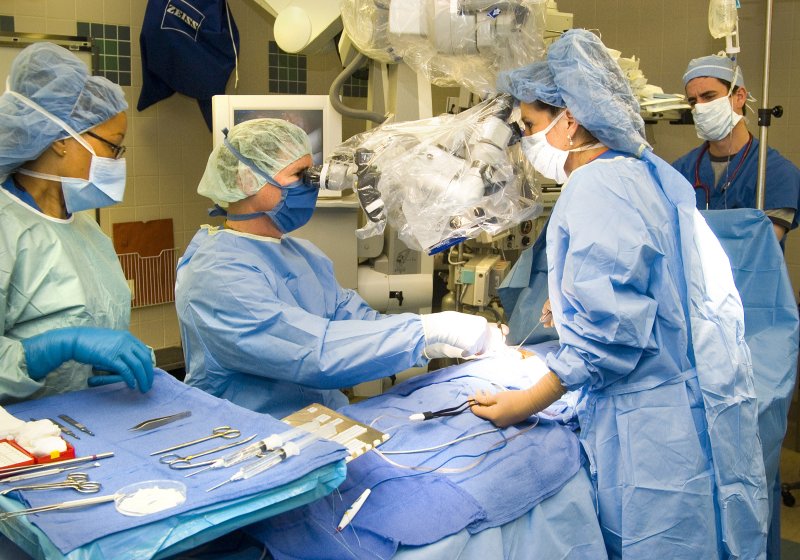Medicare paid some half billion for non-beneficial prostate tests. (UPI Photo/HO/Children's Healthcare of Atlanta). |
License Photo
NEW HAVEN, Conn., Oct. 9 (UPI) -- Prostate cancer screening has little benefit for men age 75 and older, yet a third of these tests under Medicare are for men this age, U.S. researchers say.
Lead author Xiaomei Ma, an associate professor at Yale School of Public Health, and colleagues conducted an observational study of older male Medicare beneficiaries who were free of prostate cancer and other lower urinary tract symptoms at the end of 2006, and tracked them for three years.
The study, published in the journal Cancer, found Medicare fee-for-service program spent $447 million annually on prostate-specific antigen-based screenings -- a third for men age 75 and older.
The team found the cost of prostate cancer screening ranged from $17 to $62 per beneficiary across regions. However, the bulk of this variation was not due to the cost of PSA test itself but rather to variation in costs of the follow-up tests.
"More than 70 percent of prostate cancer screening-related costs were due to follow-up procedures," Ma said in a statement. "Our results suggest that the overall cost of prostate cancer screening might be heavily influenced by how urologists choose to respond to the result of a PSA test, more so than the use of the PSA itself."
Meanwhile, the benefits of screening and treatment are not clear, the study said. While men living in high-spending regions were more likely to be diagnosed with localized cancers, they were not significantly less likely to be diagnosed with metastatic cancer -- cancer spread to other organs.
This suggests spending more on prostate cancer screening might identify more localized tumors, but might not necessarily reduce the rate of metastatic cancers, Ma said.
"In a time when healthcare spending is soaring, it is important to weigh the physical, psychological and financial burden of cancer screening against the possible clinical benefit," said Dr. Cary Gross, a professor of internal medicine at Yale School of Medicine.
"Many older men who are diagnosed with early-stage prostate cancer might end up receiving therapy that is potentially toxic, has little chance of benefit, and carries substantial cost."
In order to truly understand the costs of screening, the next step is to identify how many additional cancers are being diagnosed and treated as a result of screening older men for prostate cancer, Gross said.















